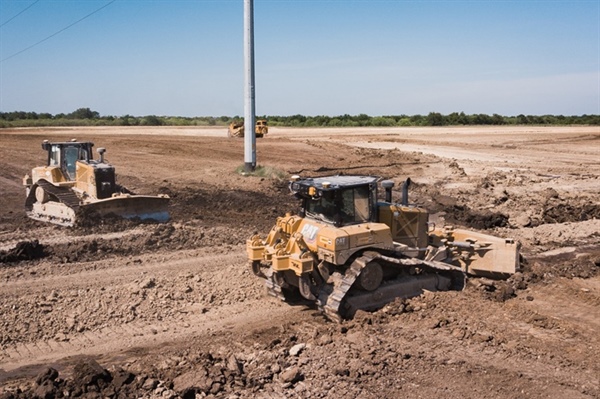The Importance of Due Diligence in Land Development

Embarking on a land development project is a significant investment. Success depends on careful planning, precise execution, and a clear understanding of the property's potential and limitations.
This is where due diligence becomes the most critical phase of your project. It is the foundational process of investigation and evaluation that mitigates risk, prevents costly oversights, and sets the stage for a profitable outcome. Skipping this step is a gamble few can afford to take.
At Terradyne, we provide the expertise needed to navigate the complexities of land development. Our process ensures you have a comprehensive picture of your investment before breaking ground.
Thorough due diligence provides clarity, saving you time, money, and future legal challenges.
Understanding Due Diligence in Land Development
Due diligence is a systematic process of gathering and analyzing information about a property to identify any issues that could impact its development potential.
It involves a multi-faceted investigation into environmental conditions, legal and regulatory constraints, and financial viability. This proactive approach enables developers to make informed decisions, negotiate more favorable terms, and design projects that are both practical and profitable.
Without a comprehensive due diligence process, a project can face unexpected delays and budget overruns. Imagine discovering a protected wetland habitat or significant soil contamination after closing a deal. These issues can halt construction indefinitely and lead to substantial financial losses.
Proper diligence turns these potential unknowns into known variables you can plan for.
Key Aspects of Due Diligence
A successful land development project relies on several pillars of investigation. Each component provides essential data that contributes to a complete understanding of the site.
Environmental Site Assessments (ESAs)
Before you can build, you must understand the ground beneath your feet. Environmental Site Assessments are crucial for identifying potential contamination from past uses or adjacent properties.
-
Phase I ESA: This is a non-intrusive investigation that includes a review of historical records, a site inspection, and interviews to assess the likelihood of environmental contamination. It identifies potential red flags without soil or water sampling.
-
Phase II ESA: If a Phase I assessment reveals potential concerns, a Phase II ESA is conducted. This involves collecting and analyzing soil, groundwater, and surface water samples to confirm the presence and extent of hazardous substances.
Discovering contamination early allows you to address remediation needs and factor those costs into your project budget. With Terradyne, you get site-specific recommendations to manage environmental risks effectively, ensuring compliance and protecting your investment.
Geotechnical Investigations
The stability of your future structures depends entirely on the soil and rock beneath them. A geotechnical investigation analyzes surface and subsurface conditions to determine the engineering properties of the site's geology. This includes soil testing to assess composition, strength, and stability.
The data gathered from these investigations is vital for designing appropriate foundations, retaining walls, and other structural elements. It prevents issues like excessive settlement, foundation failure, and slope instability, which can compromise the entire project.
Our team provides the foundational work necessary for design accuracy, enabling you to build with confidence.
Zoning, Entitlements, & Permitting
Navigating the web of local regulations is one of the most complex parts of land development.
Due diligence in this area involves:
-
Zoning Compliance: Confirming that your proposed project aligns with the property's current zoning designation.
-
Entitlements: Securing the legal rights to develop the property for its intended use, which may involve rezoning or obtaining special use permits.
-
Permitting: Identifying all necessary local, state, and federal permits required for construction.
Misunderstanding these requirements can lead to significant delays and even force a complete project redesign. A thorough review of municipal codes, land use plans, and development standards ensures your project can move forward without regulatory roadblocks.
The Financial Benefits of Thorough Due Diligence
While due diligence requires an upfront investment, it delivers substantial returns by preventing costly mistakes. The cost of identifying and addressing a problem before construction is a fraction of what it would cost to fix it afterward.
Accurate Budgeting & Financial Feasibility
By uncovering all potential development costs — from site work and remediation to infrastructure upgrades and permit fees — you can create a realistic project budget. A detailed financial feasibility analysis determines whether the project’s projected returns justify the investment. This clear financial picture is essential for securing financing and ensuring long-term profitability.
Mitigating Risk & Avoiding Legal Issues
Due diligence acts as a critical risk management tool. Identifying issues like endangered species habitats, floodplain designations, or property line disputes before acquisition allows you to negotiate solutions or walk away from a deal that is too risky. This proactive approach protects you from potential lawsuits, regulatory fines, and construction shutdowns that can derail a project and damage your reputation.
Consider a scenario where a developer purchases a large tract of land for a residential community without a proper survey. During initial site clearing, a neighbor claims an easement for an access road runs directly through the proposed building area. This discovery leads to a lengthy and expensive legal battle, halting all progress. A simple boundary survey as part of the due diligence process would have identified this issue, allowing the developer to address it during negotiations.
Partner With Our Experts for Confident Development
Successful land development is not about luck; it is about strategic planning and informed decision-making. The due diligence process is the cornerstone of that strategy. It provides the certainty needed to invest with confidence, design with accuracy, and build with lasting success.
With Terradyne, you work with experts backed by 30 years of trusted ingenuity and solution-driven results. Our comprehensive due diligence services provide the critical insights you need to navigate every stage of your project, from geotechnical engineering and soil testing to robust environmental engineering. We help you identify opportunities, mitigate risks, and lay the groundwork for a successful and profitable development.
Contact Terradyne today to ensure your next land development project is built on a foundation of certainty and expertise.